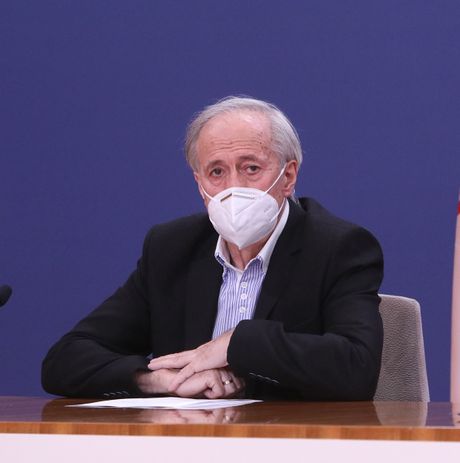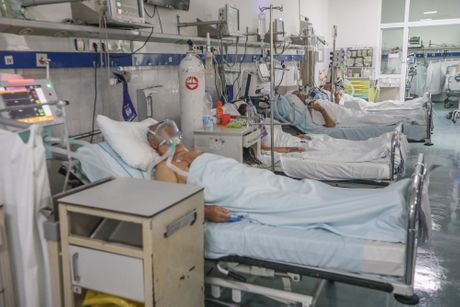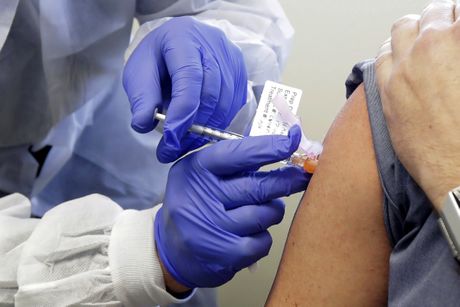Dr. Pelemis: Situation must be analyzed now, if there's no improvement we'll tighten measures

A member of the Crisis HQ for the fight against coronavirus, infectologist Mijomir Pelemis, said that we must not wait 14 days to analyze the effect of the latest measures, which came into force on Tuesday.
"Long before December 1, today or tomorrow, we must analyze, not the effects of the measures, but the epidemiological situation, and if we do not see an improvement, we should immediately tighten the measures," Pelemis told Vecernje Novosti.
The new measures took effect on Tuesday. Under them, hospitality establishments, stores and shopping centers can stay open until 9 pm, and since last night, 24 night city transportation lines have been canceled in Belgrade.
Yesterday, Serbia broke three bad records, and it was the worst day in our country since the beginning of the coronavirus epidemic. 27 people died, the virus was confirmed in another 5,613 people, and a total of 18,040 were tested over a 24-hour period. About 700 people were hospitalized yesterday alone.
Pelemis says that the Crisis HQ members who are medical professionals insisted that closing time should be 6 pm long before it was shortened to 9 pm on Tuesday - regardless of what the usual business hours are - if anti-epidemic measures are not respected.
More strict measures could mean further shortening opening hours, work from home, limiting the number of people in public transport and increasing the distance, which would then mean that more than the current four square meters per person must be provided indoors.
We already have 1,500 new Covid patients hospitalized every day, so even though they are mostly over the age of 50, Professor Pelemis is unhappy about the misconception that this infection is most dangerous to pensioners.
Coronavirus is equally dangerous for everyone
"Covid 19 is equally dangerous for all ages, regardless of gender, there is only a difference in the outcome of the disease," explains the professor:
"Everyone can get infected, and anyone who is infected can die due to complications. We had young people dying from Covid, fortunately not children, but reports from the US show that Covid has been fatal for more than 100 children there."
With the vaccination against Covid, which will start in Serbia for health workers and members of the army and the police by the end of the year, things will start to change for the better, but even with that, Pelemis is convinced, we will not solve all the problems.
"When the vaccination begins, it will take at least two months to develop immunity, if at least 70 percent of the population is vaccinated," explains the infectologist:
"It doesn't matter how many times the vaccine will be received, I will be the first to receive it if necessary three times, if it is effective and safe. But, even with the vaccine, we still have a long time ahead of wearing masks, increased hand hygiene, distancing and a ban on gatherings. If we have an effective vaccine in the spring, the epidemic could be over by the end of next year, but I don't like to make forecasts."
Naturally acquired collective immunity certainly cannot be counted on at this stage of the epidemic, even if 20 percent of the population was in contact with SARS-CoV-2, as some epidemiologists estimate.

"Collective immunity is not something we don't need, but in order to develop it, a huge number of people must be infected, at least 70 percent of the population. We do not know how somebody will get through this virus, and how long their acquired immunity lasts, many people would die, and the question is what consequences those who recover will live with. That would be a very expensive game, and our strategy is definitely not the natural acquisition of collective immunity," Professor Pelemis noted.
Premature claims that immunity after recovering from Covid lasts 3 to 4 months
Even the claims that are now circulating - that antibodies protect against the infection for at least three to four months after healing from a previous contraction of the virus are premature, especially since in practice there have been people who, in a shorter period of time, once again manifested the symptoms of Covid.
"The question is whether PCR methods are reliable enough and whether people are really negative after treatment and a negative PCR test. There is not enough data to distinguish whether these are new infections or reactivations of the previous one. I have personally met people who have had symptoms of Covid twice, and usually, if they had a mild form the first time, the disease is more severe the next time," says Pelemis.

Can those who already had Covid get vaccinated
Professor Mijomir Pelemis advises patients who have had Covid 19 to get the anti-flu vaccine:
"They should go to an infectologist for a checkup within a month after the cessation of the Covid symptoms, and if they are healthy, they should receive protection against the flu. As for the vaccine against Covid, which we do not yet know for how long it provides immunity, the rules are different, and the level of antibodies a person has should be crucial in making a decision on getting vaccinated.
Video: Dr. Stevanovic recovers from Covid: I am still freshly recovered, but there is no time to wait
(Telegraf.rs)
Video: Zmija poskok pojavila se u Užicu
Telegraf.rs zadržava sva prava nad sadržajem. Za preuzimanje sadržaja pogledajte uputstva na stranici Uslovi korišćenja.

